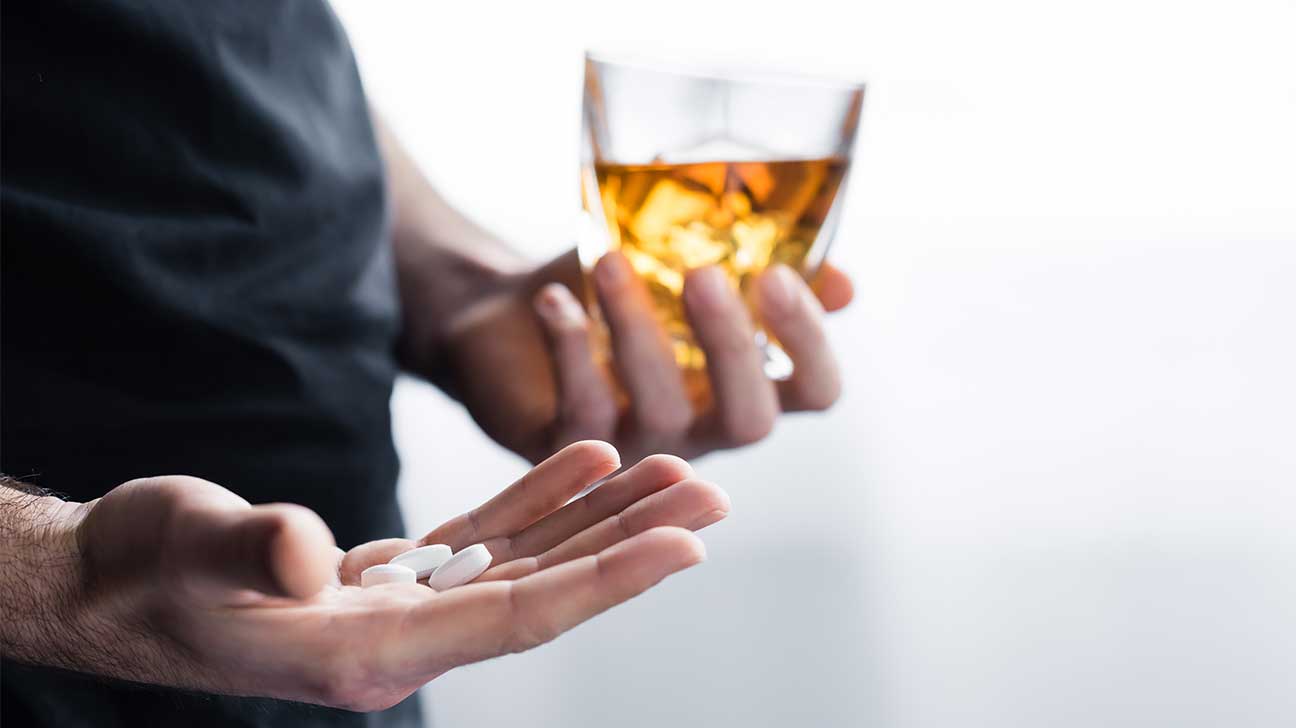
Mixing alcohol and benzodiazepines (benzos) like lorazepam (brand name, Ativan) can cause sudden death from cardiac arrest and respiratory failure. Recreational use of prescription benzos is illegal and its dangerous health effects, when combined with alcohol, should be taken seriously.
Alcohol and lorazepam are both depressant drugs that affect the central nervous system (CNS). People may mix alcohol and benzos if they have a tolerance to one or both of these substances, which means they need more of the drugs to feel the effects.
Yet mixing alcohol and lorazepam can be dangerous and greatly increases the risk for addiction, physical dependence, and overdose. Treatment can help people stop the abuse of alcohol or benzodiazepines and help prevent these unwanted effects.
Side Effects Of Lorazepam And Alcohol
Alcohol is a common substance of abuse when it comes to polysubstance use. Alcohol is easy to get, is widely used, and has broad depressant effects on the central nervous system.
Alcohol acts to sedate the body through gamma-aminobutyric acid (GABA) neurotransmitters in the brain.
Its short-term side effects include the following:
- poor judgment
- blurred vision
- loss of coordination
- trouble regulating emotions
- dulled perception
- nausea and vomiting
Alcohol is processed through the liver, but it also impacts the brain and heart over the long-term. Cancers of the mouth and throat, stomach, liver, and kidneys may be associated with heavy alcohol use.
More long-term symptoms include:
- high blood pressure
- heart disease
- difficulty learning/poor attention span
- memory loss
- cancer
- continued excessive sedation
Ativan is a prescription benzodiazepine that can be highly habit-forming. It is most commonly used as a mental health treatment for anxiety and panic attacks. However, it is also prescribed for insomnia, irritable bowel syndrome, epilepsy, and nausea from cancer treatments.
Lorazepam works to reduce brain activity and nerve function. It is commonly used to ease withdrawal symptoms associated with alcohol abuse and opioid abuse.
On its own, Ativan should be used with caution and under medical supervision. However, when benzodiazepines like Xanax, Valium, and Ativan are used recreationally or abused against medical advice, it complicates withdrawal symptoms.
Polysubstance use involving benzos also generally amplifies dangerous overdose effects like coma, low blood pressure, heart failure, and cardiac arrest.
General side effects of lorazepam include:
- drowsiness
- dizziness
- weakness
- amnesia
- depression/suicidal ideation
- loss of motor skills
Dangers And Risks Of Mixing Lorazepam And Alcohol
When combined with alcohol, Ativan amplifies most of the short-term CNS depressant effects of alcohol.
The worsened short-term side effects of mixing lorazepam and alcohol may include:
- increased overdose risk
- difficulty breathing
- drowsiness
- reduced coordination
- poor decision-making/unusual behavior
- memory problems
Long-term substance abuse involving lorazepam and alcohol includes all of the long-term effects that drinking alcohol excessively creates.
General effects surrounding long-term drug abuse of Ativan include disease, malfunction, and cancer of major organs like the liver and kidneys. It also carries the risk of psychosis, suicide, and neurological injury.
However, more immediate, serious harm occurs with an overdose.
Ativan And Alcohol Overdose
Ativan, like other prescription benzos, amplifies alcohol’s depressant effects. People who have liver damage due to substance abuse may be more susceptible to overdose when their liver is unable to process the substances.
When alcohol and lorazepam are taken in excess, the resulting central nervous system depression can be unpredictable. Alcohol poisoning, or overdose, can occur, especially if a person experiences “blackouts” and continues drinking or taking lorazepam.
Overdose symptoms may look like typical side effects and can include:
- dangerously slowed or shallow breathing (respiratory depression)
- drowsiness
- coma
- confusion
- lethargy
- slurred speech
- weak heartbeat
- hypnotic state
- low blood pressure
- death
Benzodiazepine And Alcohol Withdrawal Symptoms
On its own, Ativan can create dependency. Generally, as with other benzos, a supervised taper is the best way to control withdrawal symptoms associated with lorazepam.
Some symptoms of Ativan withdrawal can include:
- anxiety
- seizures
- vomiting
- depression
- aggression
Symptoms of alcohol withdrawal have a wide range, depending on factors like length of time drinking, age, weight, and more. In a healthcare setting, lorazepam and diazepam are prescribed as a taper to ease symptoms associated with alcohol withdrawal.
Common alcohol withdrawal symptoms include:
- anxiety
- irritability
- mood swings
- fatigue
- depression
- clouded thoughts
- headache
- dilated pupils
- insomnia
- nausea
- vomiting
- rapid heart rate
- tremors
When alcohol withdrawals are most severe (delirium tremens), some symptoms may be life-threatening if not controlled adequately.
Severe withdrawals may result in:
- seizures
- fever
- agitation
- hallucinations
- severe confusion
Treatment For Alcohol And Lorazepam Addiction
If you or a loved one have alcohol addiction, benzo dependency, or other substance use disorders, there is hope. It’s never too late to improve your life with a treatment program. Call our treatment specialists for more information about the best addiction treatment facilities and programming for your needs.
With a range of inpatient treatment options across the United States, you can select the best treatment center for supervised detox and recovery. A sober life is possible, and there’s no better time to make a change than now.
Article Sources- Medscape—Benzodiazepine Toxicity
https://emedicine.medscape.com/article/813255-overview - Medscape — Ativan
https://reference.medscape.com/drug/ativan-loraz-lorazepam-342906 - SAMHSA — Alcohol Management as Harm Reduction
https://www.samhsa.gov/homelessness-programs-resources/hpr-resources/alcohol-management-harm-reduction


